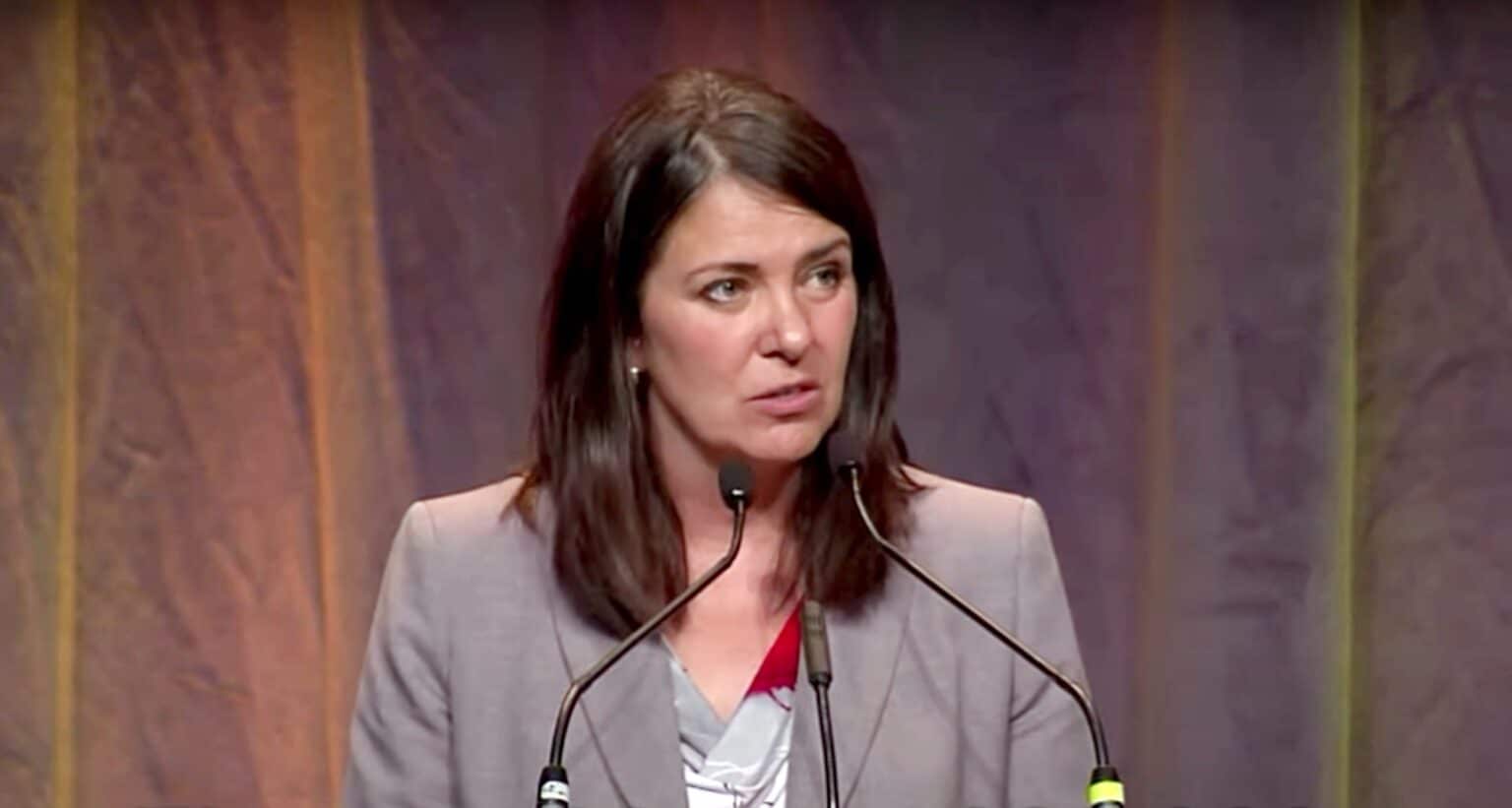As concerns grow that a proposed Alberta “Sovereignty Act” could undermine Indigenous rights, Premier Danielle Smith has sought to assure First Nations leaders that they have nothing to worry about.
“The Government of Alberta acknowledges the concerns,” a spokesperson for Smith told CBC after chiefs from Treaties 6, 7, and 8 publicly rejected the sovereignty plan. The spokesperson explained that “nothing within the act is to be construed as abrogating or derogating from any existing Aboriginal and treaty rights.”
But Smith is sending a different message through her support for the Alberta Prosperity Project, a group “educating Albertans on the merits of Alberta independence and sovereignty,” which has made opposition to the United Nations Declaration on The Rights of Indigenous Peoples, also known as UNDRIP, a top priority.
“APP absolutely does not support UNDRIP,” the group’s CEO Dennis Modry said during a webinar this summer. “We don’t need a woke United Nations to ram down our throats their socialist, Marxist agenda.”
Modry and Premier Smith are well-acquainted and share similar goals for the province, as she explained during a leadership debate hosted by the Alberta Prosperity Project and Ezra Levant’s Rebel News in August.
“So part of when I decided I wanted to run [for Alberta premier], I knew how important it was to make sure that we addressed the issues of autonomy,” Smith said at the event. “And I talked to Dr. Modry as one of my first steps. I said, ‘let’s try this together.’”
Smith’s office didn’t respond to questions from DeSmog about these and other remarks.
Smith’s controversial “Sovereignty Act” would give the premier and her cabinet the power to contest any federal policy or law that they define as harmful to Alberta’s interests. The Alberta Prosperity Project supports the more radical goal of independence for the province, but Smith says that the group is a key ally because its members can potentially pressure the federal government through the threat of organizing a petition campaign on separation.
“This is why I take your movement very, very seriously,” she said at the debate. “And why Justin Trudeau should take it very, very seriously, too.”
Smith hasn’t appeared to take as seriously the concerns of Indigenous communities.
Treaty 8 First Nations Grand Chief Arthur Noskey told DeSmog that he missed a call from Smith before she introduced her Sovereignty Act and when he tried to call back it went to voicemail. “Ever since then, nothing,” he told DeSmog.
Noskey said that Smith’s plans for Alberta sovereignty undermine Indigenous rights that are set out in treaties signed between First Nations and the federal government.
“There’s no benefit to us,” he said, predicting that the true winners of any successful sovereignty push would be resource companies that gain from fewer federal regulations. “I think basically what is driving this is that the big industry sectors want to keep making money, keep exploiting resources without any accountability,” he said.
Some First Nations leaders are now putting forward “an emergency resolution at the Special Chiefs Assembly in Ottawa” rejecting the Alberta Sovereignty Act, calling Smith’s legislation “a blatant disregard of the rule of law,” explains a press release from organizations representing Alberta and Saskatchewan First Nations.
The Alberta Prosperity Project has suggested that greater legislative recognition of Indigenous sovereignty could come at the expense of resource extraction, with Modry citing concerns this summer that the federal bill implementing UNDRIP might “slow or even stop resource development.”
His organization didn’t respond to questions from DeSmog.
During an Alberta Prosperity Project webinar last month entitled “Unmarked or Mass Graves?” which questioned discoveries of unmarked graves near former Indian Residential Schools sites, APP members Kerry Lambert and Chris Scott shared unsubstantiated conspiracy theories about UNDRIP.
“On top level it sounds like a great idea,” Lambert said. “But if you really look into it, it’s really another way that the UN can actually give land to the Indigenous, have them take it over, set up the Indigenous to fail, and when they fail in what they’re supposed to be doing, the UN will come in and pick up all the land and redistribute it as they will.”
Scott meanwhile compared UNDRIP to the smallpox-infected blankets that British army officers reportedly presented to native Americans in the 18th Century.
“I’m not saying [UNDRIP] is the same thing, but sometimes these things that are presented as gifts and benefits to people, there’s a very, very nefarious side to it,” he said.
An Alberta Prosperity Project supporter who identifies as Indigenous, a lawyer and podcaster named Leighton Grey, acknowledged in July that the group hasn’t had much luck recruiting First Nations people to the fight for Alberta autonomy.
“To date, this has frankly been a challenge,” he said.
Subscribe to our newsletter
Stay up to date with DeSmog news and alerts






